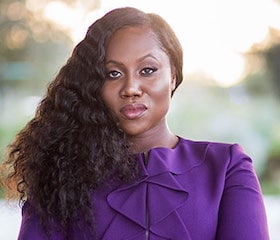



Family Law Attorneys in Orlando
Divorce and other family law disputes can alter the direction of your life completely. To ensure that you protect your rights as fully as possible, it's essential to retain an attorney who will aggressively advocate for you and your family. Our compassionate attorneys at the FAB Law Firm can develop a strategy suited to your specific needs.
Any action that seeks to modify a person's rights or obligations with respect to a domestic relationship falls under the umbrella of family law. The Florida legislature has enacted laws that define the procedures for pursuing a family law action. These cover situations involving divorce, child custody, child support, and paternity, among other issues. Following the procedural requirements is essential to preserving your rights. This is one reason why retaining a knowledgeable attorney can make a huge difference to the outcome of your case.

In Florida, a party seeking a divorce does not need to prove fault. Instead, the party must merely allege that the marriage is irretrievably broken and that either the party or the party's spouse has lived in Florida for at least six months prior to filing for divorce. In the petition, the party will set forth the relief sought, which can include not only a dissolution of the marriage but also a division of child custody and provisions for child support and spousal support. In some cases, the parties cannot come to an agreement on these issues. An Orlando divorce attorney can advocate for a spouse in any ensuing litigation.
Child Custody
In Florida, if the parents of a child can agree on how custody should be divided, they can present a parenting plan to the court that outlines matters such as how the parents will share responsibility for the tasks associated with raising the child and the schedule for time-sharing. If the parents cannot agree, the court will determine custody based on what is in the best interests of the child. There is a presumption under Florida law that it is in a child's best interests for the parents to share parental responsibilities and rights. Thus, the court will issue an order granting the parents shared parental responsibility unless such an arrangement will be detrimental to the child.
Child Support
While all parents have a duty to financially support their children, not all parents have the same financial means. Thus, in many instances, a court will order one parent to pay child support to the other parent. Generally, a child support obligation will continue until a child turns 18. A court will look at the combined income of both parents, which includes earned and imputed income, and the number of children being supported to determine an appropriate support obligation. A divorce attorney in Orlando can advocate for a child support arrangement that meets your needs.
Paternity
Establishing paternity is critical to protecting parental rights and enforcing parental obligations. In Florida, a child born to a woman who is married to a man is presumed to be the man's child. If a child is born to parents who are not married, paternity can be established in two ways. If both parties agree that the man is the father of the child, the parties can sign a Voluntary Acknowledgement of Paternity, which they can then file with the court. If the parties do not agree regarding paternity, either party can file an Establishment of Paternity Action. After the action is filed, the court will weigh evidence, which may include the results of a DNA test, to determine whether the man is the child's father.
Child Relocation
Under Florida law, when a parent wishes to move a child 50 or more miles from the child's current residence for 60 or more days, this is known as a relocation. A parent who seeks to relocate a child must inform his or her co-parent prior to relocating. If the co-parent consents, the parties can draft an agreement with the assistance of an Orlando divorce lawyer, establishing the terms of the relocation, and submit it to the court for approval. The court will approve the agreement if it finds it to be in the best interests of the child. If the co-parent does not consent, however, the parent seeking to relocate the child must file a petition to relocate and obtain court approval prior to relocating the child.
Father's Rights
In Florida, fathers have equal rights to mothers with regard to child custody and child support. Prior to attempting to assert his rights, a man must prove that he is the father of the child. After paternity is established, a man can seek custody rights, such as time-sharing and parental responsibility. A court will consider multiple factors in determining custody, all of which relate to what is in a child's best interests. For example, a court may consider each parent's ability to care for the child, including their mental and physical health, the child's needs, and the moral fitness of each parent.
Discuss Your Situation With the FAB Law Firm TodayThe FAB Law Firm's seasoned attorney's are dedicated to helping their clients protect their interests and assert their rights. They represent people who need a divorce lawyer in the Orlando area or elsewhere in Florida. You can contact our firm at 800-322-9467 or via the online form for a consultation.
Our clients are looking for an attorney who they can speak with directly. We know this, and make open communication a hallmark of our firm. We communicate updates on your case every step of the way, and we're for you whenever you need to reach out.
One of the keys to success at our firm is that we are experienced trial attorneys and effective negotiators. No matter what brings you to us, we won't just tell you what you want to hear- we present the good with the bad and design a powerful legal strategy to protect you and the people that you value most.
Our attorneys are dedicated to helping clients navigate the legal system during the most difficult time in their lives. They make it a priority to relentlessly fight on behalf of our clients and protect their rights. Being effective in the courtroom is the Fab Law Firm's bread and butter- we're driven to achieve the best results possible and will provide you with first class service at every stage of your case. Honest and open communication is important to the attorney-client relationship and is the foundation of our firm.

The incredible legal team at The Fab Law Firm has over 36 years of combined experience and is led by the fearless managing attorney Felicia A. Bunbury. She's been selected as a Super Lawyers Rising Star for the past four years in a row and has notable trial experience.
Phone: (800) FAB-WINS
Phone: (800) 322-9467
Phone: (407) 710-1446
#800
Phone: (800) FAB-WINS
Phone: (800) 322-9467
Phone: (407) 710-1446
5th Floor
Phone: (800) FAB-WINS
Phone: (800) 322-9467
Phone: (407) 710-1446
Attorney Advertising
Orlando Divorce Law | Orlando, Florida | FAB Law Firm
This site is protected by reCAPTCHA and the Google Privacy Policy and Terms of Service apply.
Please do not include any confidential or sensitive information in a contact form, text message, or voicemail. The contact form sends information by non-encrypted email, which is not secure. Submitting a contact form, sending a text message, making a phone call, or leaving a voicemail does not create an attorney-client relationship.
 FAB Law Firm Home
FAB Law Firm Home









